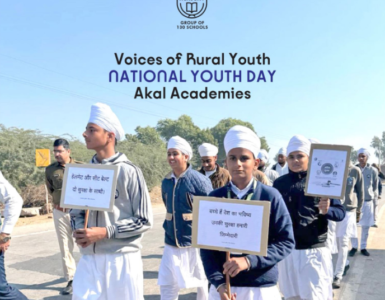A Historic Performance at Royal Albert Hall
The Blue Lions, a UK-based band of Sikh Nihangs, made history with their sell-out debut concert at the prestigious Royal Albert Hall on February 13, 2017.
Reviving Rare Indian Classical Compositions
The Blue Lions, composed of second and third-generation British-born Nihangs, delivered a captivating performance featuring rare and centuries-old compositions in Indian classical music and Sikh kirtan. Dressed in traditional turbans and robes (banas), the band played to a diverse audience eager to learn about Indian classical music and Sikh shabads.
Audience Reaction: A Divine Experience
Kamalroop Singh, a member of the Blue Lions, shared that many audience members were deeply moved by the magical verses and struggled to express their appreciation for the divine experience.
The Royal Albert Hall: A Historic Venue
Opened in 1871 in Westminster, London, the Royal Albert Hall is a renowned venue dedicated to Prince Albert, Queen Victoria’s late husband. The concert underscored the growing British interest in Indian classical music, Sikh kirtan, yoga, mantras, and meditation.
The Global Journey of Blue Lions
The Blue Lions have enchanted audiences worldwide, performing in countries like Spain, France, Germany, India, USA, Portugal, and Mauritius. Some of their notable collaborations include performing with Basement Jaxx at the O2 Arena, Bob Dylan, and Terry Oldfield. Among their many performances, playing kirtan at Sachkhand Hazur Sahib in Nanded, Maharashtra, remains their most spiritually uplifting experience.
Spreading Sikh Awareness Through Music
The Blue Lions use their music as a platform to educate audiences about Sikhism. While the band members occasionally face challenges like discrimination at airports, they also use these moments as opportunities to share their heritage and promote the values of meditation and harmony.
Conclusion: A Cultural Bridge Through Music
The Blue Lions’ sold-out concert at Royal Albert Hall not only showcased their musical brilliance but also served as a celebration of Sikh culture and a bridge between diverse communities through the universal language of music.















Add comment